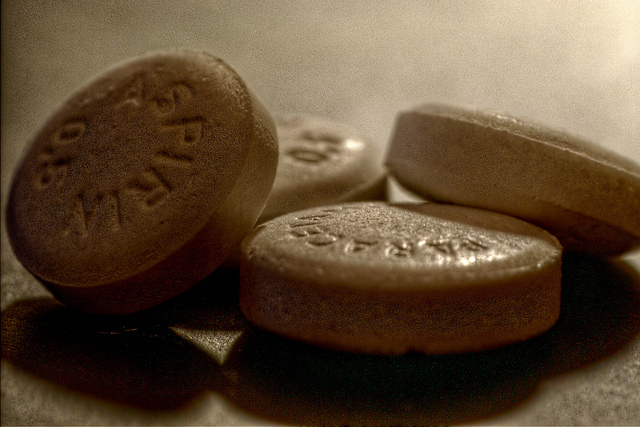
Certain commonly used over-the-counter pain relievers, like aspirin and ibuprofen, can help prevent breast cancer recurrence, says a new study.
For the study, researchers looked at 440 breast cancer patients. Overweight and obese postmenopausal women, who used nonsteroidal anti-inflammatory drugs (NSAIDs), achieved a 50 percent reduction in ERα positive breast cancer recurrence for more than two years.
"Overweight or obese women diagnosed with breast cancer are facing a worse prognosis than normal-weight women," Cancer researcher Linda deGraffenried of The University of Texas at Austin, said in a news release.
"We believe that obese women are facing a different disease. There are changes at the molecular level. We seek to modulate the disease promoting effects of obesity."
To understand the mechanisms that make breast cancer more aggressive and less responsive to treatment in overweight women, researchers placed ERα positive breast cancer cells in blood serum collected from obese and normal women. Cancer cells grew more aggressively in blood serum collected from obese women than the latter.
Researchers said inflammation contributed widely to this occurrence, a reason they pointed out to explain why some breast cancer recurrence drugs like aromatase inhibitors, often fail in providing positive results. "It looks like the mechanism is prostaglandins, which have a role in inflammation, and there's more of it in the obese patient serum," Andrew Brenner, an oncologist from the Cancer Therapy & Research Center at The University of Texas Health Science Center at San Antonio, said in a statement.
"What this study does is present great promise that a fairly inexpensive and nontoxic agent might benefit obese and overweight breast cancer patients who are at a higher risk of aromatase inhibitor failure — but further studies are needed to confirm these results," Laura Bowers, who led the cell culture segment of the study, said.
The study published in Cancer Research comes at a time when Breast cancer has emerged as one of the leading causes of death among women across the globe.
Breast cancer recurrence is the relapse of the disease after initial treatment. It can either re-appear in the same area, a condition termed as local recurrence or any other part of the body, known as distance recurrence. Lymph nodes, bones, liver and lungs are some common sites of distant recurrence, according to MedicineNet.com.
Local recurrence can be identified through a small pink or red lump known as nodule in- the same breast skin, scar from breast cancer surgery or in the breast tissue left after the surgery. The nodule, according to Cancer Research UK can be easily cured with mastectomy, tumour removal followed by radiotherapy or through a combination of chemotherapy, biological therapy and hormone therapy.
In January last year, researchers from The University of Alberta announced development of a simple blood test to predict cancer recurrence in women affected with luminal A breast cancer.















